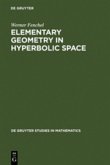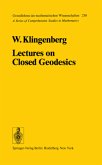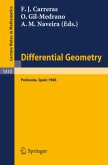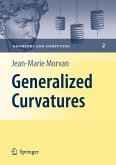In the three decades since the introduction of the Kobayashi distance, the subject of hyperbolic complex spaces and holomorphic mappings has grown to be a big industry. This book gives a comprehensive and systematic account on the Carathéodory and Kobayashi distances, hyperbolic complex spaces and holomorphic mappings with geometric methods. A very complete list of references should be useful for prospective researchers in this area.
Hinweis: Dieser Artikel kann nur an eine deutsche Lieferadresse ausgeliefert werden.
Hinweis: Dieser Artikel kann nur an eine deutsche Lieferadresse ausgeliefert werden.
"The author's book is exceptionally well organized, with an impressive collection of references to the literature. A particular strength of the book is the author's taste in choosing which examples to include and which to omit. The author did an excellent job of selecting and treating examples that are essential for developing the reader's intuition about the subject and contented himself with citing the literature for technical examples that illustrate finer points. Although the index is quite good for locating the definitions of all the important terms, the one fault this reviewer found with the book is that because the book has so many things in it, he felt that a more comprehensive index including entries such as "complete hyperbolic implies taut, page 240" was in order. This reviewer would recommend this book to nearly anyone interested in the geometry and function theory of complex manifolds, although a beginning student may find some of the later chapters a little rough going at times."--MATHEMATICAL REVIEWS









